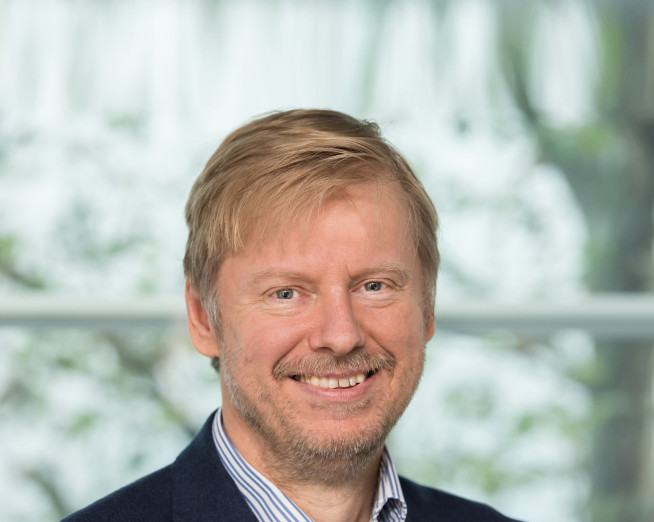
Tim Chapman (MSc Soil Mechanics 1987) is Director at Arup - Net Zero Carbon for Infrastructure.
We were delighted to recently catch up with Tim and hear about his Imperial highlights, which include being inspired by the College community as a student and even meeting his future wife here.
Having followed his passions from the very beginning, Tim has enjoyed a vibrant career pursuing a range of interests across the engineering sector, most prominently in the field of infrastructure. Tim’s current work is focused on bringing about sustainable infrastructure that will favour both the planet and society - present and future.
Why did you choose to study at Imperial?
Because it was (and still is) the best place in the world to study what I was most interested in.
Can you tell us about your studies at Imperial?
I studied hard and enjoyed myself, learning volumes about my chosen subject.
In addition, I learnt much about the application of systems thinking, which has always been hugely relevant whenever I’ve embarked on new fields of study.
At Imperial I was exposed to some of the planet’s top thinkers in every field. I found myself understanding more about humility and the need to always question and listen before jumping to conclusions.
Who did you find inspiring at Imperial and why?
I was massively inspired by the depth and breadth of knowledge of all the academic staff but also by my fellow students, I was fortunate to learn lots from all of them.
What fond memories do you have of your time here?
I met many life-long friends here - including my wife! Meanwhile my favourite place was the old Southside Bar, now long since demolished.
Tell us a bit about the work you’re doing now, and your journey to this point.
Having started my career in the field of soil mechanics and geotechnical engineering, my career has meandered through big infrastructure design into the outcomes that society needs from its infrastructure systems, into how infrastructure should be at the heart of transforming our societies into ones that can be happy, healthy, and prosperous whilst living in net zero carbon ways.
I didn’t select my path as such, I just continued to do what intrigued me. I was fortunate to have had the right educational foundations and a sympathetic employer who allowed me to follow my passions!
What does sustainability mean to you, and how does your work connect with it?
We are facing twin emergencies of climate change and biodiversity failure. Our present time is the culmination of a quarter of a millennium of humankind plundering and destroying our planet at a fantastic rate in search of ever higher living standards. Those living standards have generally allowed humans to live in vastly happier ways than they once did, and indeed, we need to continue maintaining human dignity, but we ought to do so in a way that simultaneously respects the planet and allows future generations to live well too.
Barack Obama once said that we are the first generation to feel the impact of climate change - and the last generation that can do something about it. I have been privileged in my work to be helping identify the ways that our infrastructure systems can play a major part in such a transition.
How has what you learnt at Imperial helped you in your career?
My time at Imperial gave me the technical confidence to keep on questioning, even in fields beyond my own. This has enabled me to step into new fields that are freshly developing and given me the chance to contribute to their evolution.
What has been your career highlight so far?
Probably to help conceive and write the world’s first standard for whole life management of carbon in infrastructure systems (PAS 2080) – vital for all places and systems.
There have been lowlights too, of course.
What does a typical day look like for you now?
As a director at Arup, I am fortunate to have a very varied job dealing with our business, supporting, and mentoring a wide variety of people and contributing to major projects by ensuring that they are future fit – this involves going beyond our client brief and trying to be prescient about how projects will be successful in the future too.
What are your plans for the future?
To have fun by engaging in new ideas and initiatives, and hopefully help people and society along the way.
What would be your advice for current students?
Always be curious and read widely, including amongst those you would expect to disagree with.
What makes you proud to be an Imperial alumnus?
Imperial remains one of the top technical universities on the planet and is continually expanding into new areas that are of great relevance for humanity.
I would describe Imperial alumni as (generally) brilliant – I always start off with a very positive pre-conception about graduates from Imperial and have been only very occasionally disappointed.
Do you have a favourite quote or saying?
My current favourite quote comes from Abraham Lincoln who apparently once said, "Give me six hours to chop down a tree, and I will spend the first four sharpening the axe."
While cutting down trees is obviously not very environmentally friendly, I strongly agree with the need to prepare carefully if you intend on doing something successfully, especially if it is something complex with a vast number of related issues – such as thwarting climate change.
What inspired Tim at Imperial?
"I was massively inspired by the depth and breadth of knowledge of all the academic staff but also by my fellow students, I was fortunate to learn lots from all of them."